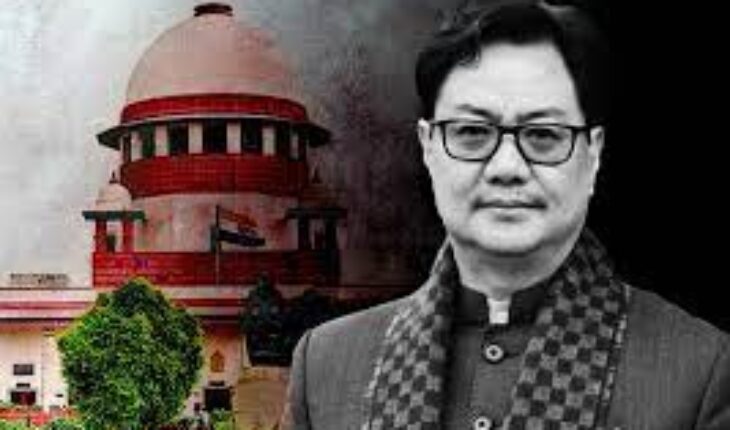The Centre appears determined to turn its conflict with the judiciary over judicial appointments into something unseemly. The sources of friction are two-fold. One is the daily diatribe by Law Minister Kiren Rijiju, who appears to have been given an assignment to target the Collegium system with trenchant criticism of its known, but uncorrected flaws, and top it with unwarranted remarks such as asking the Court not to send any files, if it felt it was sitting on them. The second is the Government’s strategy of delaying appointments recommended by the Collegium as a counterblast to its loss of primacy in the matter. It is not difficult to bring relations between the judiciary and the executive back on track, if only the two sides are willing to address each other’s concerns. The Court has a valid point when it says the uncertainty over the fate of a recommendation for appointment is resulting in eminent lawyers withdrawing their consent or declining invitations to join the Bench. There are instances of the Government ignoring even two or three reiterations, and of the absence of any communication of objections or reservations, if any, that the Government may have about particular candidates. If the current trend continues, it is not difficult to conceive of a situation in which a major verdict that may go against the Government is portrayed by the political leadership as stemming from the hostility of the judiciary and not one on merits. One way of stopping further deterioration is for the Government to clear pending recommendations. Another way is for the judiciary to begin or agree to a process of reforms in the way the Collegium functions, especially with regard to expanding the range of consultation and widen the zone of consideration so that the superior judiciary, and those it consults, are more diverse and representative of all sections.
SC-govt tussle continues over Collegium system
Published Date: 03-12-2022 | 2:48 pm




